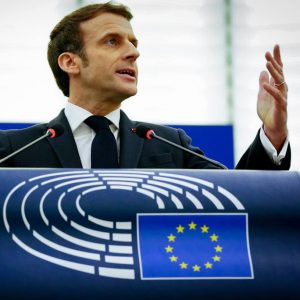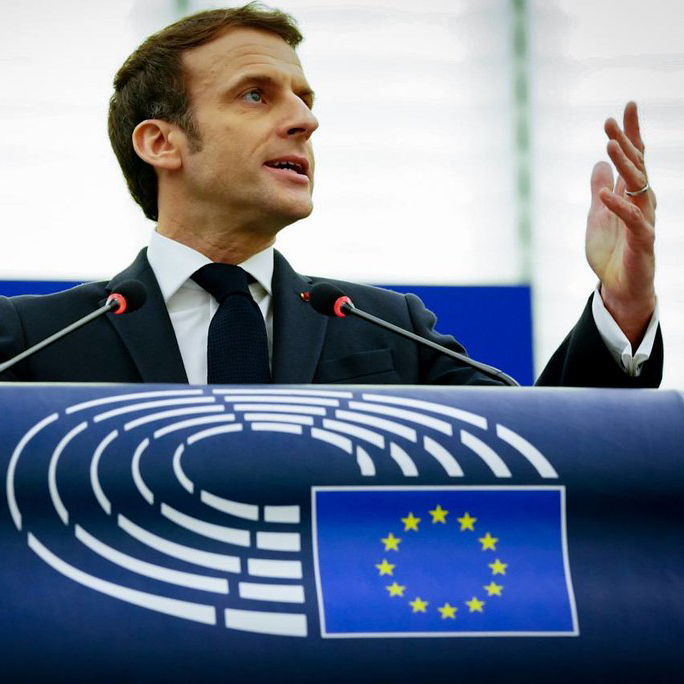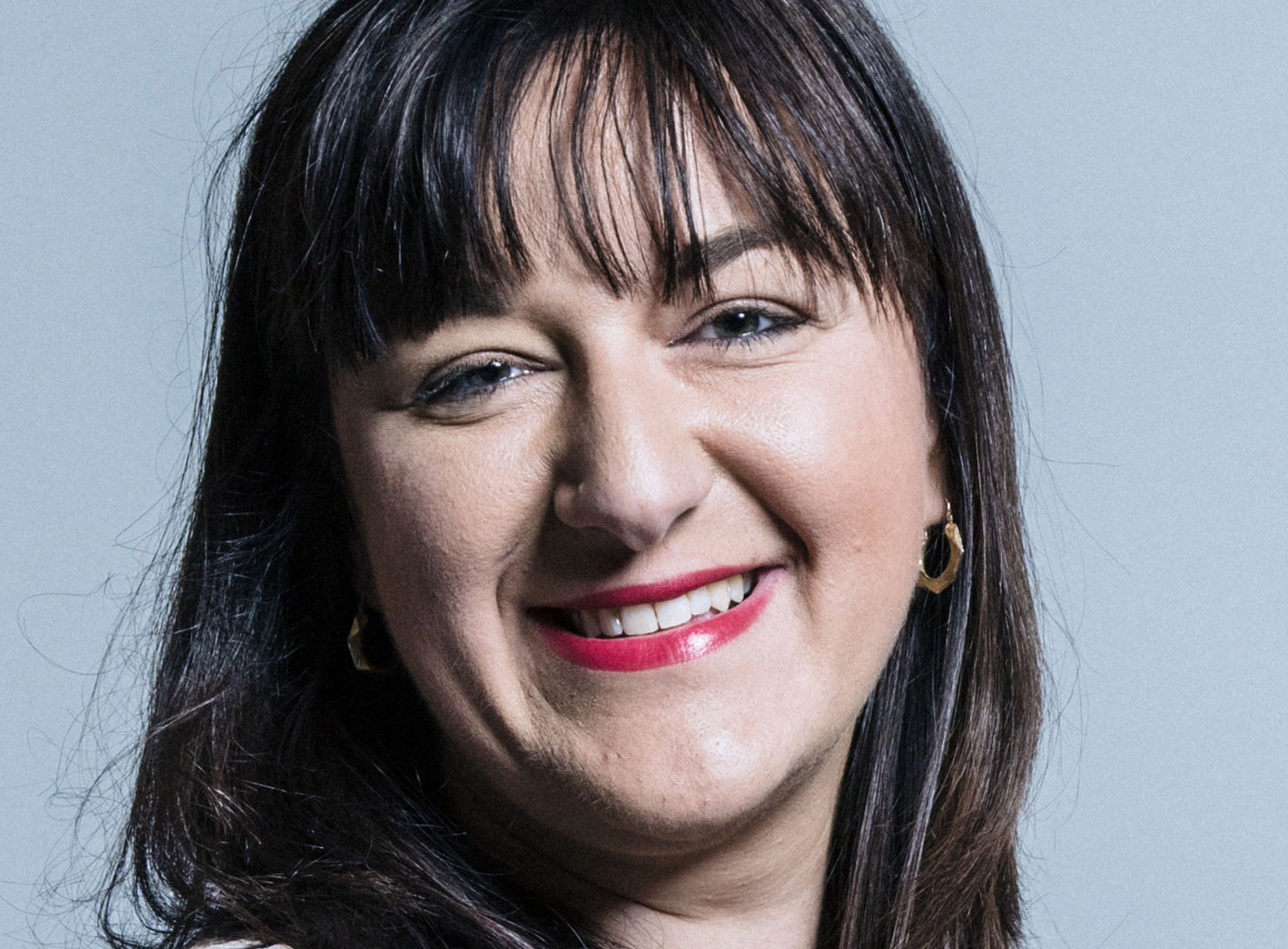[vc_row][vc_column][vc_column_text]

President of the French Republic Emmanuel Macron at the European Parliament in 2022. Photo: France Diplomatie
Threats to free speech and freedom of expression can come from a range of different places. Most often it is the despotic tyrants who use fear and violence to crush dissent but sometimes, it comes from the unintended consequences of those trying to control something new.
With advancements in AI, online advertising and digital news outlets, those with both the power and responsibility to regulate the internet are grappling with complex new challenges at a time when more and more people want to protect their online rights.
We’ve seen this happen in the UK as the Online Safety Bill slowly grinds through Westminster and lawmakers try to find new ways of protecting both users and free speech.
But it’s not just the UK which is struggling to find that balance: there is another piece of proposed regulation in Europe that is rapidly becoming a potential threat to freedom of speech and freedom of expression.
Since 2016, post the Brexit referendum and the election of Donald Trump, there has been much discussion about proposals to regulate political advertising online. Seven years later, the European Union is finally taking its first steps into this tangled web and trying to come up with rules which will seek to regulate exactly how political advertising can work inside the union.
As it is currently drafted, Europe’s political ads regulation could have a huge chilling effect both for Europeans and for those who rely on the EU’s protection of expression. We would all agree that scrutiny of, and transparency in, political campaigning is a cornerstone of a thriving and functioning democracy. To be able to hold political parties and their leaders to account for what they say and do is integral to democratic societies.
Paid-for political advertising is nothing new. It has been a part of traditional campaigning across Europe for years. From newspapers to billboards, political actors have always paid to get their message across to the electorate.
But the EU is proposing to go much further than regulate just paid political online advertising, their draft regulation could include any content that could be deemed to advance a political view.
This sweeping definition would include unpaid content, created by citizens or grassroots campaigners, regardless of whether someone has paid for the content to be placed.
Online content including YouTube videos and tweets from members of the public could suddenly become subject to strict rules on what they can and cannot say, with legal consequences for platforms if content deemed to be political is not removed within a tight 48-hour window.
Imagine the silencing of online public commentary during the French Presidential debates or the Irish Dail elections if platforms are suddenly required to regulate every comment offered by every pundit, every journalist or every citizen. Such a broad definition would likely lead to the zealous over-removal of any content deemed political for fear of penalty, opening the door for manipulation by tyrants, bad-faith actors and political opponents looking to limit freedom of speech online.
Even analysis about a political party’s electoral fortunes might be caught in the net and that is before we even know what the Commission plans for citizen journalism or those who run third-party campaigns against extremists.
What is more, citizens and campaigners in countries where freedom of speech is not afforded the same protections as in the EU often rely on European media outlets for access to real news. If news commentary and debate in the run-up to elections is undermined then this poses a direct threat to Europe’s role as a human rights leader. Suddenly, voices of democracy based in Europe would be silent and all as a consequence of the EU trying to protect the integrity of their own democracy.
Allowing people to express their political views is a fundamental component of freedom of expression. Not only that, restricting online content in this way goes much further than any offline restriction on freedom of speech. Much like the Digital Services Act that we campaigned on in 2021, the unintended consequences of trying to regulate our digital world appears to affect our real-world freedoms.
Index’s position then, as it is now, is clear: what is legal to say offline should be the benchmark for what is legal to say online. Content created online to promote a legitimate political ideology, viewpoint or authorised candidacy should be afforded the same freedom of speech protection that it would enjoy offline.
We should all be more cautious about believing what we read on the internet – just as we should approach our daily newspaper reports with a healthy dose of scepticism. But, if politicians and political actors have a message they wish to promote, they should be free to do so, however much we might disagree with their view. If campaigners want to support or oppose what they see and hear online, we should welcome the discourse and accept that in a vibrant democratic society there will be differences.
Ultimately, the people who will properly regulate political advertising are the voters themselves. If they think they are being conned or hoodwinked, they will show that at the ballot box.
By all means, let’s ensure that the rules governing online adverts are the same as the rules governing offline campaigning. Let’s bring in the transparency and the openness that ensures a level playing field and a fair fight for politics offline but let’s not imperil political advertising or push out the marginal voices who so often rely on digital ads to be heard.
The EU must reconsider their online political ads regulation and use it as a chance to embed transparency, not eliminate debate.
At the end of the day, voters will have the final word but before then, they have a right to hear what is being said.[/vc_column_text][/vc_column][/vc_row][vc_row][vc_column][three_column_post title=”You may also wish to read” category_id=”41669″][/vc_column][/vc_row]






